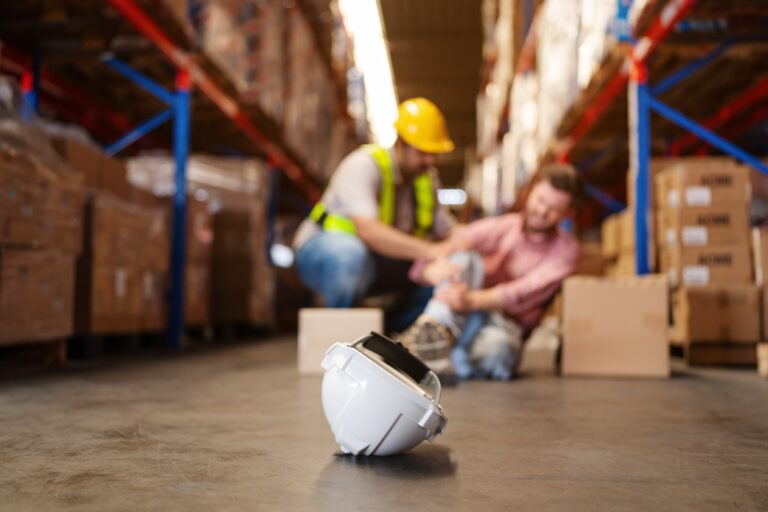Construction Accidents – Making a Claim for an accident at work
The construction industry is a significant source of employment in the UK. With the housing and building market on the increase in recent years, the number of people working in construction roles has also gone up. This is most clear to see in London with cranes and building sites going up across the city’s skyline on a regular basis.
The demand for workers is high and the quick turnover required in delivering construction projects on time and in budget means that the industry has to constantly evolve to meet the demand. This means that workers are often hired on a casual basis, they are often brought on a short term or rolling basis through agencies. However, while the hiring of construction workers may be casual, the risks involved in working in the construction industry are far from it.
The construction industry is one of the most dangerous industries in which to work. The Health and Safety Executive statistics for 2014/15 show that in the Construction industry, 3% of workers suffered an illness they believe to be work related. A further 3% of workers sustained a work related injury. Of these injuries, 23% are reported to be due to slips, trips and falls, 22% due to lifting and handling, and 19% due to falls from heights. Undoubtedly, the physical and manual nature of the majority of jobs in the construction industry means that it presents foreseeable risks of injury. Musculoskeletal injuries account for almost 85% of all construction related injuries, but there is also evidence of respiratory disease and of stress, depression, and anxiety.

Infographic courtesy of the Health and Safety Executive
In response to concerns regarding safety within the industry, a Construction Related Occupation card scheme was introduced in 2005 which intended to provide a source of certification for occupations for which there were no nationally recognised qualifications.
This has since been replaced with the Construction Skills Certification Scheme which aims to provide evidence that individuals working on construction sites have the requisite training and qualifications for the type of work they carry out. This scheme provides some much needed clarity for employers working in the construction industry. The scheme should, in theory, ensure that a certain level of competency is evidenced and one would hope that it would follow that therefore workers will be safer on site.
Unfortunately, there are a lot of variable factors that influence how safe a construction site can be and competency of individual workers is just one of these factors.
Every employer across all areas of work must ensure that their workers are not exposed to unnecessary risks in the course of their employment. They have a responsibility to ensure that the environment that their employees work in is as safe as possible and that there are safe systems of work in place to protect the health and safety of their workers. This responsibility is known in legal terms as the duty of care. In the construction industry the employer’s duty of care is of particular importance.
What steps should my employer take to ensure my safety?
Each new site will present its own unique set of risks, but generally, the following list sets out some things that should always be considered to ensure your safety:
- Risk assessments must be carried out regularly to identify any foreseeable risks on site and in the course of your job.
- Once identified, steps should be taken to reduce these risks where reasonable. This may include providing appropriate training, ensuring the safety of equipment used on site, stipulating that sufficient health and safety equipment is used by all workers, and supervising work carried out.
- Ensure that all workers are fit for the work that they are carrying out; this may include ensuring that safe working hours are implemented.
- Make sure that all work areas are kept as tidy as possible whilst work is ongoing.
- Assess weather conditions, particularly for those working at heights.
- Reporting of all accidents on site and, where required, full and transparent compliance with any investigation instigated by the Health and Safety Executive.
Employers need to have a stringent and comprehensive health and safety system in place that is transparent and adaptable to all foreseeable risks. This must be regularly reviewed and updated in response to any changes in the work environment.
What happens if I have an accident while working on a construction site?
If you have suffered serious injuries at work as a result of someone else’s negligence you may be able to claim compensation for your injuries. You may feel under pressure to return to work, or you may be incredibly anxious about considering making a claim against your employer.
However, being unable to work will present its own stress, your injuries may mean that you are unable to work for a significant period of time and the financial pressure may be extremely worrying, particularly if your prognosis is uncertain about returning to work. If your injuries are as a result of the negligence of someone else, as well as making a claim for your injuries, you may be able to claim for loss of earnings.
It is important that you gather as much information in relation to your earnings such as wage slips, or tax returns where working on a self-employed basis so that your solicitor can evidence accurately your past earnings and aim to calculate any future prospective loss of earnings.
Your solicitor will also arrange for you to be examined by specialist medical experts to assess the extent of your injuries, and arrange for appropriate treatment and rehabilitation at the earliest opportunity.
If you have had an accident in the course of your work that is due to the negligence of someone else, it is vital that you seek proper legal advice from specialist solicitors experienced in dealing with accidents at work. At Bolt Burdon Kemp we are able to offer comprehensive and confidential advice and we can guide you step by step through the legal process.










